It was an exciting and interesting year in the world of Pacific Northwest wine.
We went through the hundreds of stories we wrote in 2013 and chose the top 20 stories. On Thursday, we reviewed stories 20 through 11.
Today, we look at stories 10-1:
10. Gallo begins rolling out new Columbia Winery
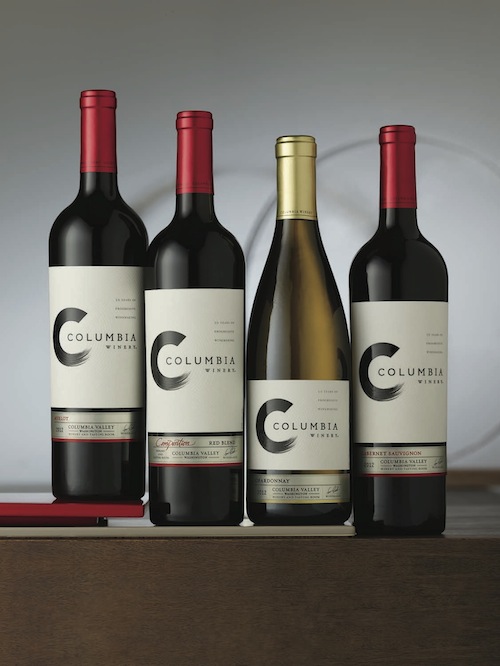
Ever since E&J Gallo purchased one of Washington’s most iconic wineries in June 2012, consumers and wine industry insiders alike have been intensely curious about what the nation’s largest family-owned wine producer would do with the 50-year-old Columbia Winery.
In December, Gallo unveiled a refreshed label and a scaled-down production model. Columbia Winery, under the direction of winemaker Sean Hails, will release four wines in January for regional distribution and, later this year, national sales. The total production for Columbia will be fewer than 100,000 cases. Under prior ownership, Columbia made nearly that much in Riesling alone. Now, Riesling is not even part of Columbia’s distribution mix.
Read more about the new Columbia Winery.
9. Precept’s big moves: vineyard purchases in Washington, Oregon
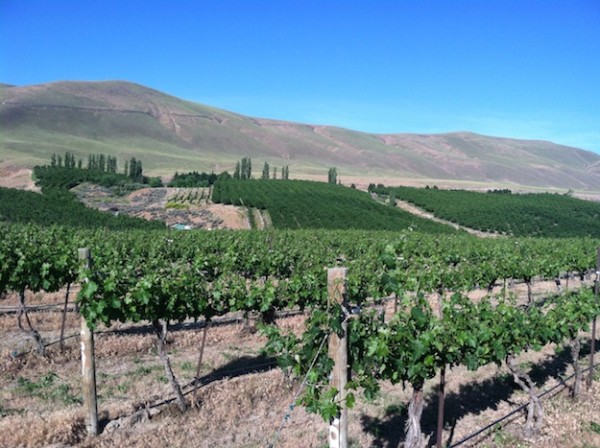
It was a huge year for Washington’s largest privately owned wine producer. Precept Wine in Seattle purchased vineyards in Washington and Oregon and continued to expand its production.
In May, Precept purchased Yamhela Vineyard in Oregon’s Yamhill-Carlton AVA. It plans to expand it from 30 acres to about 120 in the next five years. It also owns Battle Creek, a 110-acre vineyard south of Salem.
Read more about Precept’s Oregon vineyard purchase.
And in June, Precept purchased a 174-acre vineyard near Red Mountain that it then renamed Skyfall Vineyard.
Read more about Precept’s Washington vineyard purchase.
Precept now owns 16 vineyards covering 4,200 acres in Washington, Oregon and Idaho. It owns such brands as Waterbrook, Washington Hills, Canoe Ridge Vineyard, House Wine, Sagelands, Ste. Chapelle, Sawtooth and Primarius. It also is looking to make wine in British Columbia.
8. California private equity firm buys into DeLille, Dobbes, Panther Creek
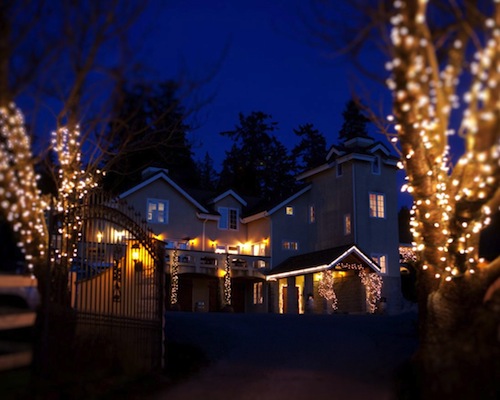
Bacchus Capital Management, a private equity firm in San Francisco, made significant investments in the Pacific Northwest in 2013.
In February, Bacchus invested in Wine By Joe, a wine producer in Dundee, Ore., allowing owner Joe Dobbes to expand production and distribution. His brands include Dobbes Family Estate, Wine By Joe and Jovino.
Read more about Bacchus’ investment in Wine By Joe.
In May, the company purchased Panther Creek Cellars in McMinnville, Ore., and appointed longtime Northwest winemaker Tony Rynders as consulting winemaker. It also invested in DeLille Cellars in Woodinville, Wash., allowing the longtime super-premium producer to expand its production.
Read more about Bacchus’ investment in DeLille and purchase of Panther Creek Cellars.
7. WSU breaks ground on Wine Science Center
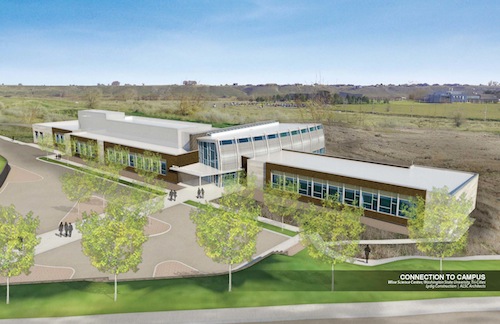
It was a big year for Washington State University’s Wine Science Center. The $23 million facility saw significant gains toward its fundraising goals, and even a California company got into the act, providing 10 years’ worth of barrels and other oak products.
The interest culminated in a September groundbreaking ceremony led by Washington Gov. Jay Inslee.
The 40,000-square-foot facility is being built adjacent to WSU Tri-Cities in Richland on land donated by the Port of Benton. When the building is completed – perhaps as early as this fall – it will be handed over to the university.
Read more about the WSU Wine Science Center.
6. Ste. Michelle makes big moves
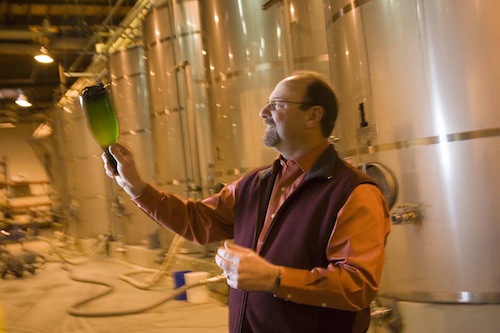
The Northwest’s largest wine company made several significant and strategic moves in 2013. They include:
Seven Falls: Doug Gore, executive vice president for winemaking, viticulture and operations, went back into the cellar for Seven Falls, a new label using grapes from Washington’s warm Wahluke Slope. The 50,000-case label is being distributed primarily through restaurants and online. In November, the Seven Falls Cabernet Sauvignon ($15) won best in show at the inaugural Great Northwest Invitational Wine Competition.
Two Vines: In December, Great Northwest Wine learned that Ste. Michelle will be taking the Two Vines tier from Columbia Crest and turning it into its own brand. Additionally, the company will make a quarter-million cases of Cabernet Sauvignon and Merlot for Two Vines using grapes from California’s Central Valley.
14 Hands: Perhaps the biggest Washington wine success story in the past decade has been 14 Hands, a label that began as a restaurant-only brand and now is Washington’s third-largest winery at more than 1 million cases. In February, Ste. Michelle announced it would move Snoqualmie Vineyards production to Columbia Crest in Paterson and rechristen the remodeled building as 14 Hands.
O Wines: O Wines, a brand started by Stacy Lill in 2006, was purchased in 2012 by Ste. Michelle Wine Estates. In March, the company announced that O Wines would become a national brand with an annual production of nearly 100,000 cases. The winery’s goal is to raise money for scholarships for low-income, high-potential women.
Anew: In June, Ste. Michelle unveiled Anew, a label for 70,000 cases of off-dry Riesling being marketed primarily to women. The wine is one of the few Ste. Michelle brands packaged under screwcap. The wines, priced at around $10, were a big hit.
Michelle: The Northwest’s largest sparkling wine house got a makeover in 2013. Domaine Ste. Michelle, launched 35 years ago, was rechristened as simply “Michelle” and got a label redesign. Rick Casqueiro is the winemaker for the 300,000-case label made at Columbia Crest in Paterson, Wash. During the reboot, Ste. Michelle also dropped Blanc de Blanc from the winery’s lineup.
5. Harvest: Likely a record in Washington, challenging weather in Oregon, early in B.C.

It was an interesting vintage in the Pacific Northwest. Throughout this corner of the continent, a warm spring led to early bud break. And a long, hot summer gave way to a harvest that began early throughout the Northwest.
Then the weather changed, with torrential rains occurring in western Oregon and a definite cool-down in Washington’s Columbia Valley. Harvest wrapped up around Halloween – normal for most years – though British Columbia ice wine took place in November, historically early for many producers.
Though the numbers are not in yet, 2013 will undoubtedly be the largest on record in Washington, with an estimated 220,000 tons likely brought in – easily surpassing 2012’s record 188,000 tons.
4. Northwest wines dominate Spectator top 100
Washington and Oregon dominated the most important top 100 list in the world of wine. The two Northwest states took 10 percent of the spots on Wine Spectator’s annual list of best wines in the world. Four of the wines came from the Walla Walla Valley, and four came from Oregon.
Read more about the Wine Spectator top 100.
3. Oregon vineyard purchases
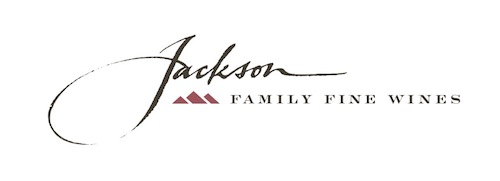 The world has discovered the greatness of Oregon wine country again.
The world has discovered the greatness of Oregon wine country again.
Jackson Family Wines – owner of Kendall-Jackson in California’s Sonoma County – purchased three Willamette Valley vineyards in March, then bought Soléna Estates in Oregon’s Yamhill County.
Read more about Jackson Family Wines’ Oregon purchase.
In August, Burgundy negociant Louis Jadot bought 32-acre Resonance Vineyard in Oregon’s Yamhill-Carlton AVA and plans to produce an Oregon Pinot Noir beginning with the 2013 vintage.
Read more about Louis Jadot’s Oregon purchase.
In December, the Drouhin family, a longtime Burgundian family with ties to Oregon since launching Domaine Drouhin Oregon in 1987, bought a 279-acre vineyard in the Eola-Amity Hills. This makes Drouhin one of the largest vineyard landholders in the Willamette Valley.
Read more about Drouhin’s Oregon purchase.
2. Duckhorn to start Red Mountain brand, buys 20 acres to plant vineyard
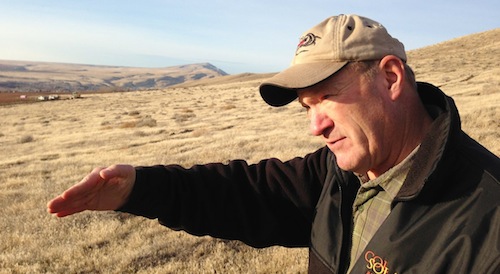
One of California’s most famous wineries is expanding into Washington. In November, Great Northwest Wine learned that Duckhorn Vineyards plans to launch a wine using grapes from Red Mountain. The longtime Napa Valley producer is making the wine at a facility in Walla Walla.
In late December, the company also announced that it has purchased 20 acres of undeveloped land near Col Solare on Red Mountain. It has hired famed Yakima Valley grape grower Dick Boushey to plant the property to Bordeaux grapes in 2014 and manage the vineyard.
Read more about Duckhorn’s move into Washington.
1. British Columbia group buys all land at Red Mountain auction

The most-anticipated land auction in the history of the Washington wine industry turned out to be the biggest story of the year because of the way it ended.
After more than four hours of bidding on 31 parcels of land in and near the Red Mountain AVA, a British Columbia company with no ties to the wine industry bought all 670 acres for $8.3 million. The Aquilini Investment Group, which owns the National Hockey League’s Vancouver Canucks, has deep ties to agriculture — primarily in blueberries, cranberries and dairies.
The company aced out dozens of other buyers, including the owners of Napa Valley’s Duckhorn Vineyards and Washington’s Kiona Vineyards & Winery, Betz Family Winery, Hedges Family Estate and Upchurch Vineyard.
Aquilini purchased the land for about $12,000 per acre. Some of the prime parcels were expected to go for more than $30,000 per acre – and the bidding for some individual lots reached that level.

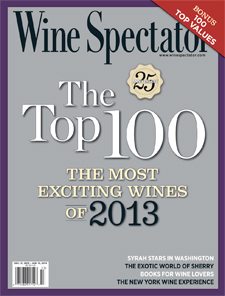
Good stuff here, Andy.
Vicki and I just got back from exploring the Central Coast of CA to taste and sun. Found their Rhone wines very mineral driven lacking middle palate. I was hoping for more. Not that I didn’t like them, they just weren’t WA wines in their depth. It would be intersting to do a blind tasting from the “Wine Region of the Year” with us’ins. I’m thinking of a purely private tasting not a big us vs them kind of thing. Maybe you have already done this 4 times. It was good to taste other first rank wines and see what we have to offer the world. It’s A LOT!
Keep up the good work.
Don